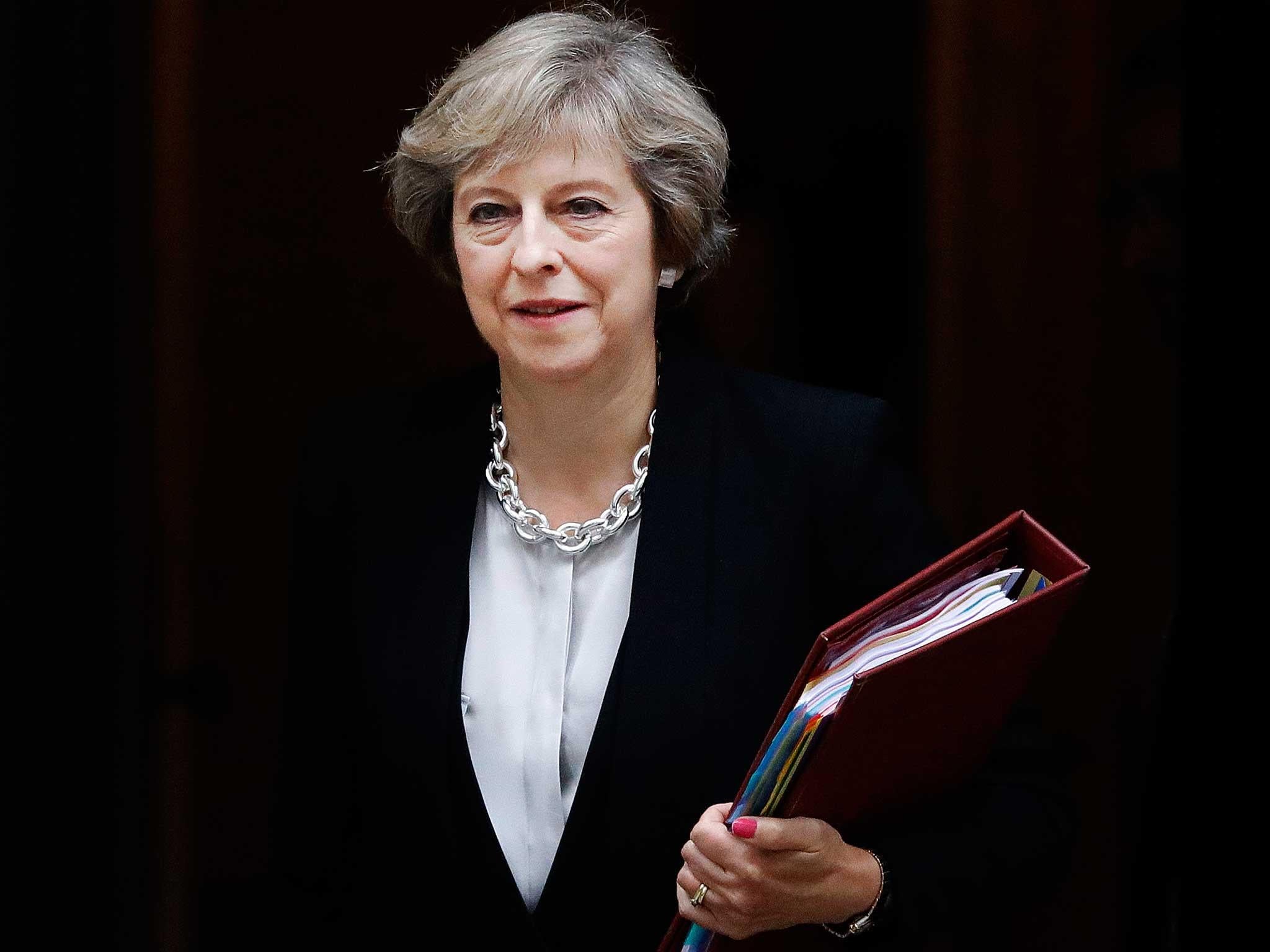Theresa May at 60: finally, the cult of political youth has been slain
Having lived through good times and bad, today’s political leaders are perhaps more inclined to follow Rudyard Kipling’s famous dictum to ‘meet with triumph and disaster, and treat those two impostors just the same’


Your support helps us to tell the story
From reproductive rights to climate change to Big Tech, The Independent is on the ground when the story is developing. Whether it's investigating the financials of Elon Musk's pro-Trump PAC or producing our latest documentary, 'The A Word', which shines a light on the American women fighting for reproductive rights, we know how important it is to parse out the facts from the messaging.
At such a critical moment in US history, we need reporters on the ground. Your donation allows us to keep sending journalists to speak to both sides of the story.
The Independent is trusted by Americans across the entire political spectrum. And unlike many other quality news outlets, we choose not to lock Americans out of our reporting and analysis with paywalls. We believe quality journalism should be available to everyone, paid for by those who can afford it.
Your support makes all the difference.Happy Birthday, Theresa May – 60 years of age.
Age is only a number of course, but it is interesting to see how the cult of youth that has dominated British politics for so long has, quietly, passed away – and not before time. As it was, the “wrong” side of 50 had become an acceptable form of ageism, and an inexplicable one too.
The most energetic example of the cult was, of course, Tony Blair – he was once the future, after all – and one of the more inane soundbites of the Blair era was “Young Britain”. Over and over, New Labour’s young Turks, and the older ones, repeated it in their successful 1997 election campaign. Even then, the British population was far from “young”; ageing gracefully, in reality, with ever more pensioners being supported by a smaller pool of “young Britons”.
In contrast to May, Blair was a remarkably young 43 years old when he won his first general election, the youngest Prime Minister since Lord Liverpool in 1812. He had already been the youngest Labour leader in its history. But Blair’s achievement was quickly surpassed by David Cameron, a slightly younger smooth-browed 43 when he strolled through the door of Number 10 with Nick Clegg (also 43).
Gordon Brown broke the run a little, at 56, while John Major was something of a dynamic newcomer when he emerged from relative obscurity to take over from Margaret Thatcher (65) in 1990, at 47. Major was then a little younger than Harold Wilson in 1964, who made it to the top when he was 48. The 1960s also favoured the cult of youth, with JFK the trendsetter.
No longer. When May faces the Leader of the Opposition across the despatch box, she sees a well-preserved 67-year-old in Jeremy Corbyn. Indeed, there is a remarkable convergence of age among the current crop of world leaders. We have Xi Jinping of China and Vladimir Putin of Russia, both 63; Francois Hollande and Angela Merkel both at 62. They will, before long, be joined by either Hillary Clinton (67) or Donald Trump (70), succeeding a much younger veteran of American politics, Barack Obama already a two-term president and now leaving office at just 55.
When May and co drop by to visit other global dignitaries they can at least feel young by comparison. The Queen, at 90, Pope Francis, who turns 80 in December; the 85-year-old Dalai Lama; and Emperor Akihito of Japan, now 82, can offer the benefit of their age and experience to those not old enough to have lived through the Second World War.
Does it mean much? Maybe something. This is a generation of leaders who have political memories stretching back to the progressive permissive 1960s, when they were no doubt precociously interested in politics. They were students in the crisis-ridden 1970s, lived through the coldest episodes of the Cold War, and by the 1990s well established in their political careers (Trump aside), with the ructions since 2007 propelling them, directly or indirectly, into power.
Having lived through good times and bad, they are perhaps more inclined to follow Rudyard Kipling’s famous dictum to “meet with triumph and disaster, and treat those two impostors just the same”.
As a group, there are similarities in the Merkel-May-Hollande-Putin-Clinton cohort; they tend to proceed carefully, to mull their decisions, and stick to their guns (literally in Vladimir’s case).
They are capable of bold initiatives – Merkel on refugees, Putin’s aggressions, obviously, May’s grammar-school plan and Brexit enthusiasm – but they don’t come on impulse. They also reflect the changing demographics of the countries they lead. In Britain, for example, we now have about half a million people aged 90 and over, roughly three times the number of 30 years ago, and about 15,000 centenarians.
No bad thing really, then, that the oldies are back in power. They haven’t discovered the elixir of youth, but they are impressive proof that ageism is plain wrong.
Join our commenting forum
Join thought-provoking conversations, follow other Independent readers and see their replies
Comments